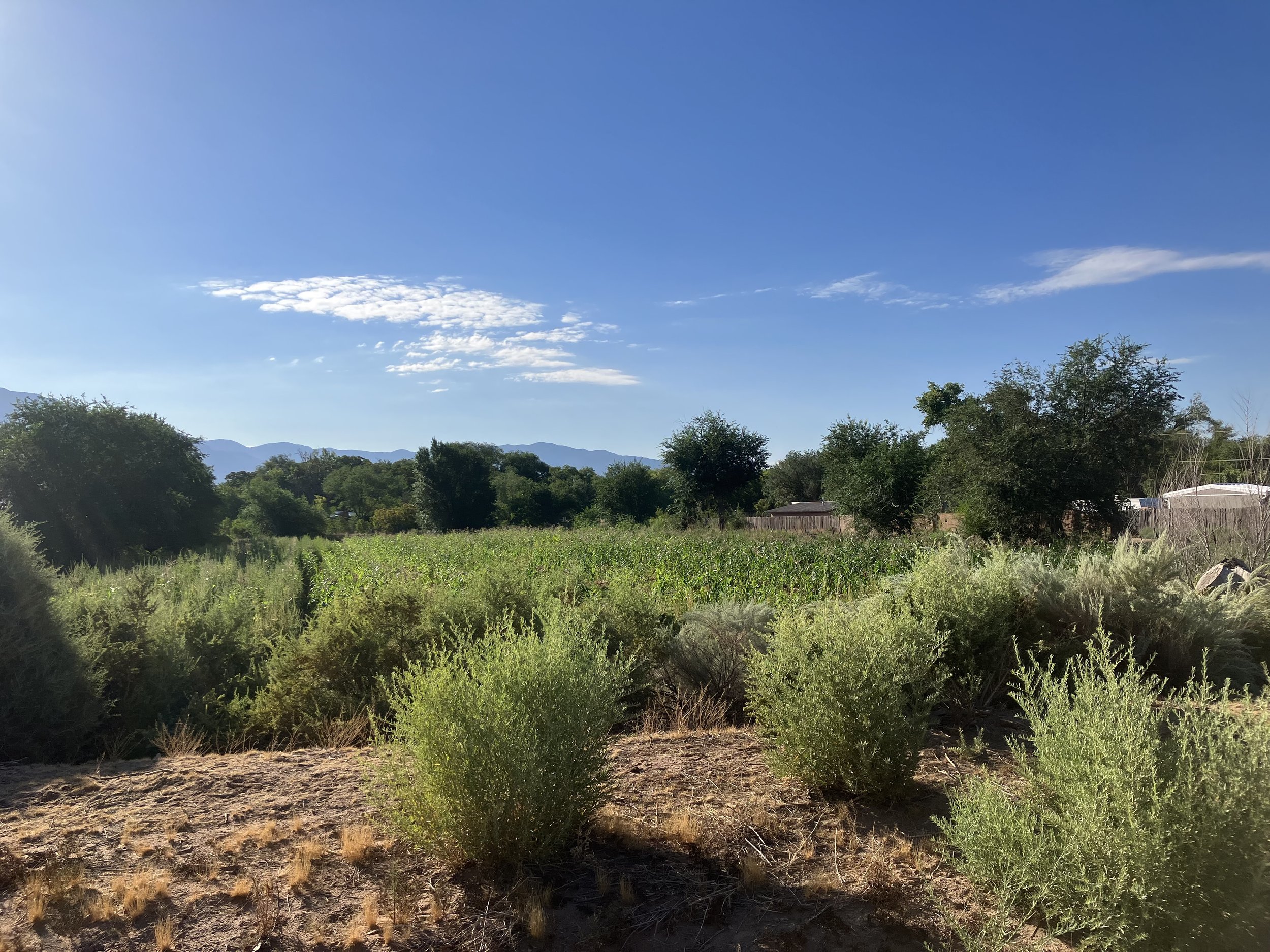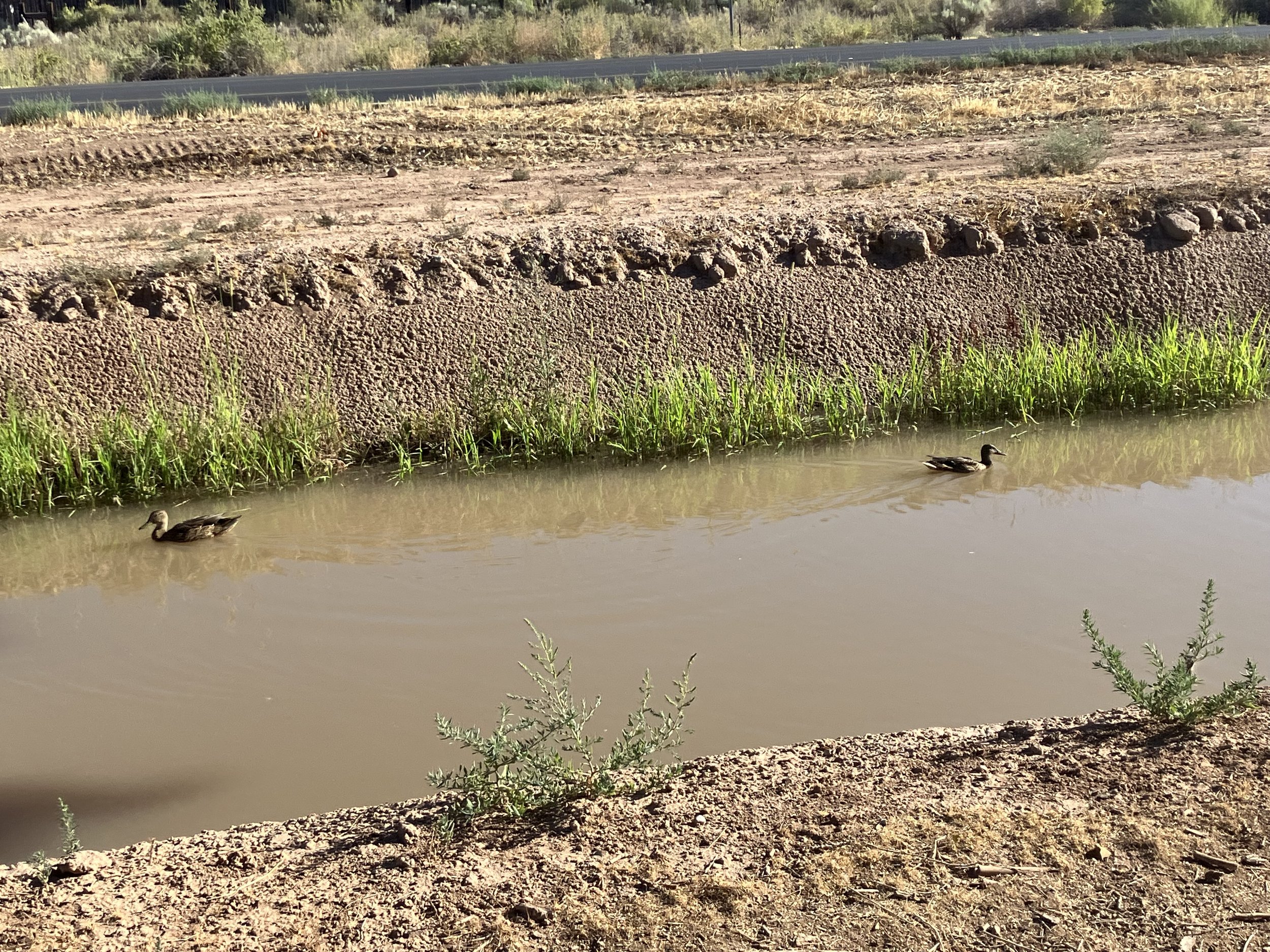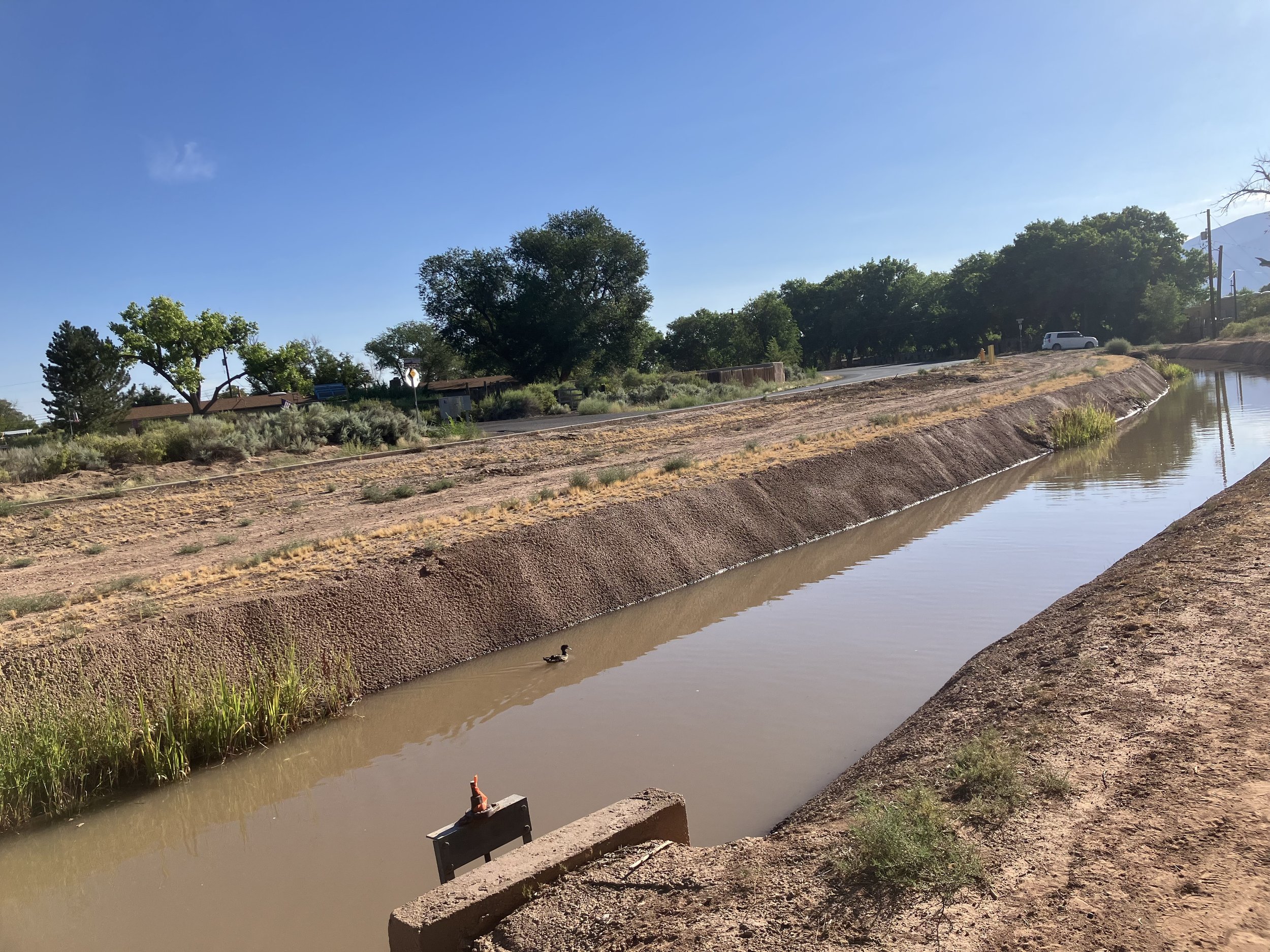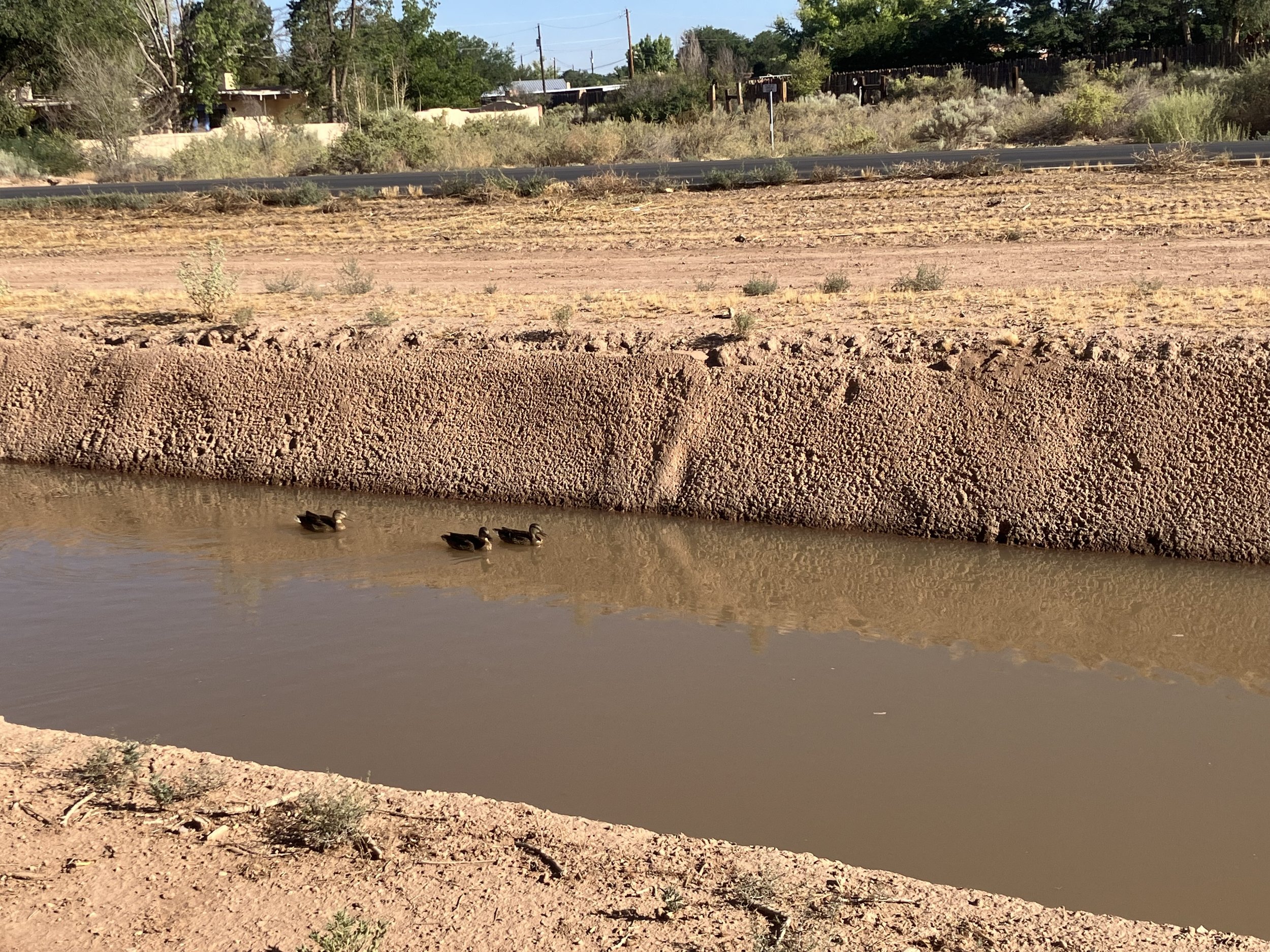I want to tell you about the moment I had this morning, which I might choose to interpret as the universe telling me not to take myself so seriously. Or maybe it’s just the very nineteenth-century experience of thinking about music while walking in nature.
I’m visiting Albuquerque, New Mexico, where I grew up, and I’m fortunate to be staying at the home of friends in Corrales, where it’s just ridiculously beautiful. This morning I was walking along the arroyo, looking at the mountains and the sky and listening to a recording of music by Robert Schumann (an Agnes contemporary) performed on a historical piano by someone who has done lots of research about performance practice.*
As always, always happen when I listen to those recordings, I was struck by how free the timing was. Not everywhere—there are moments where there’s a strong, clear beat that you could dance to—but wow are there a lot of moments where there’s not. There’s such a sense of freedom and permission there. I’ve tried for that in my own historical recordings, all my performances really——there’s always always a line to walk between expressive and accurate. And of course the expressive IS the accurate. One of the things I tell my students, and myself, over and over, is to
play the music not the notes.
Yes, practice for hours and hours to get the notes right, but they’re not the point: the music is. The phrasing, the timbre, the emotions—the notes are the means, not the end. When I perform or record music that people have heard thousands of times, I give myself permission to take liberties knowing that people might not like my interpretation, but at least they won’t dismiss, say, Chopin. I’ve been feeling a weight of responsibility about Agnes: because there are no recordings yet, I’m feeling a real responsibility to be true to her meticulous scores, to play exactly what she wrote. But exactly what she wrote doesn’t include subtle timings or where you take a breath or exactly how loud a loud sound is: that’s interpretation, and the notation system just doesn’t tell you.
In the past couple of weeks I’ve been feeling like I need to perform a real Accurate Historical Record, and then other performers can take liberties and put their own selves into the music once it’s in the canon, but for now I need to give an exact representation of what’s on the page. I need to play Agnes, not Jocelyn Playing Agnes. That’s been feeling a little depressing. And of course it’s exactly wrong: I AM Jocelyn Playing Agnes.
So I’m walking along the arroyo, listening to a recording with
so many expressive pauses
and
somespeedyparts
and I had the thought:
Maybe one of the best reactions someone could have to hearing me play music by Agnes is: “I hate the way she’s playing this—I’m going to play this piece so people can hear how it ought to sound.”
While I was forming that thought, I noticed a group of ducks paddling along the arroyo. I got ready to take a picture to send to my sister with a note about “ducks in a row” (we have a tradition of duck photos), and right then the last one turned around and clearly decided “Nuh-uh, I’m not going in the same direction as all of you.” And off it went, the other way. I laughed out loud.
So here’s to the independent duck. I know I’ll keep wrestling with these questions of expression vs accuracy in every phrase I learn and play—it’s a lifelong thing—but I hope I can keep that duck in mind when I do. It made practicing the etudes really fun today.
By the way, the other ducks went their own way for a while, but then decided to turn around and follow the independent duck. I never saw them catch up.
*That is, figuring out best we can how people actually played back then. There are no recordings, but there are diaries and letters and other written records. For example, it’s useful to know if a pianist liked to practice with a metronome (I really wish I knew that about Agnes).



